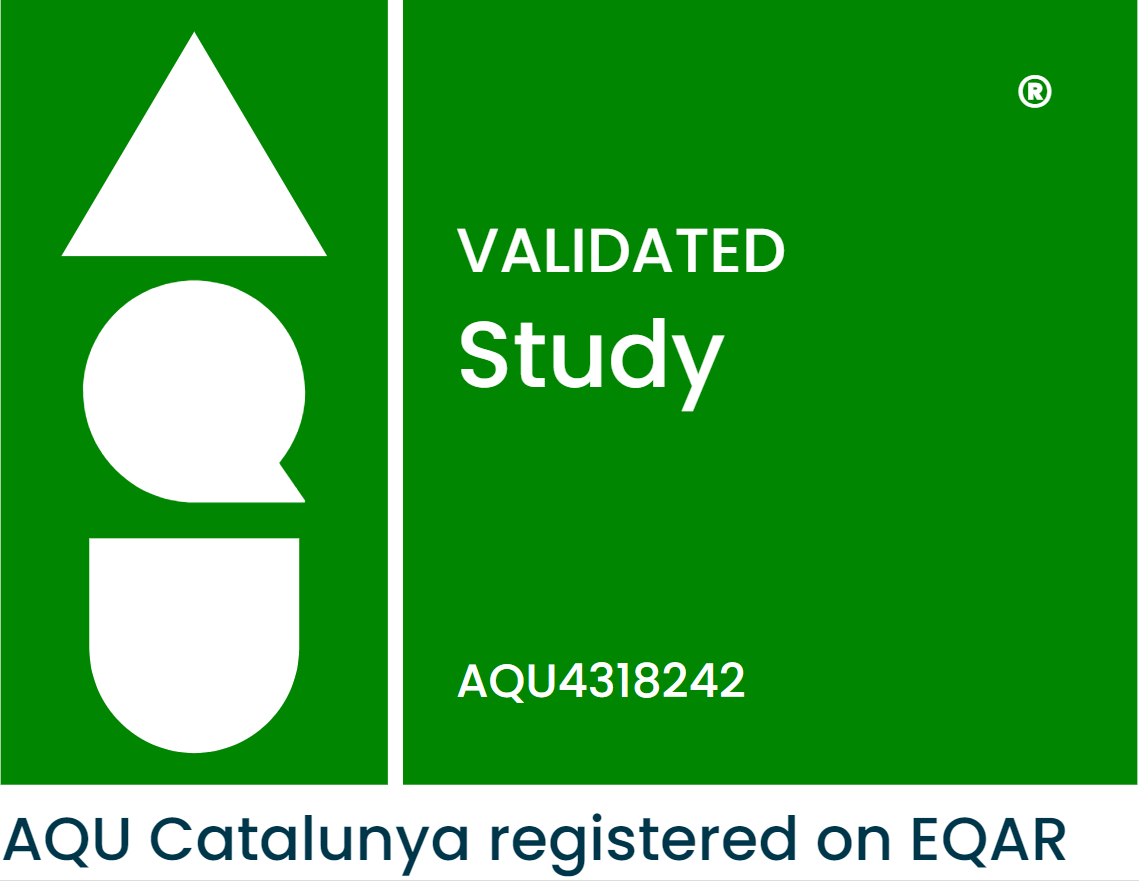University Master's Degree in Experimental Biomedical Research - Official
University Master's Degree in Biomedical Research
Reasons to study this master’s degree
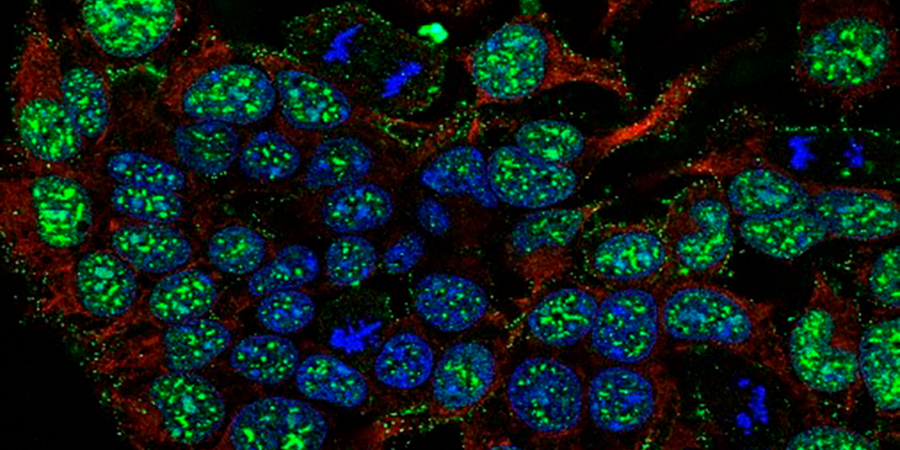
Practical approach
Our teaching methodology will reinforce your training and self-reliance in the biomedical research lab, mainly through practical training both in our laboratories and in the research centres with which we have an agreement
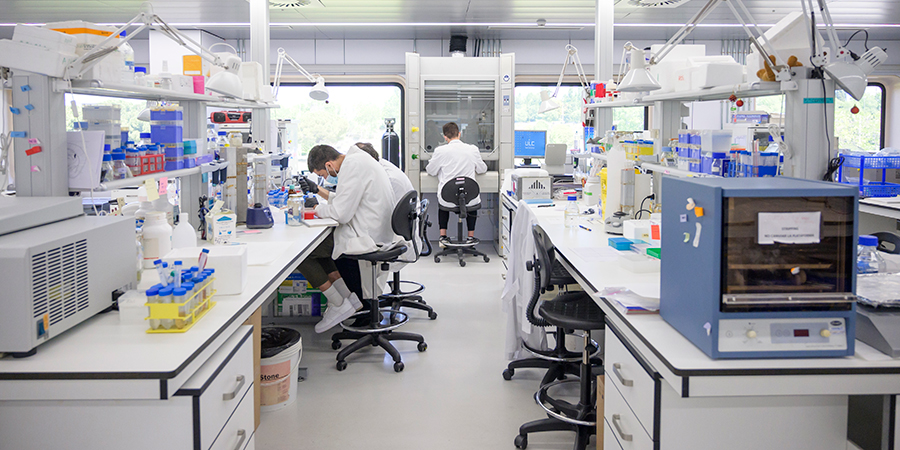
International outlook
We promote internationalisation through work placement mobility. We have international students and teachers, and English is the working language of the programme.
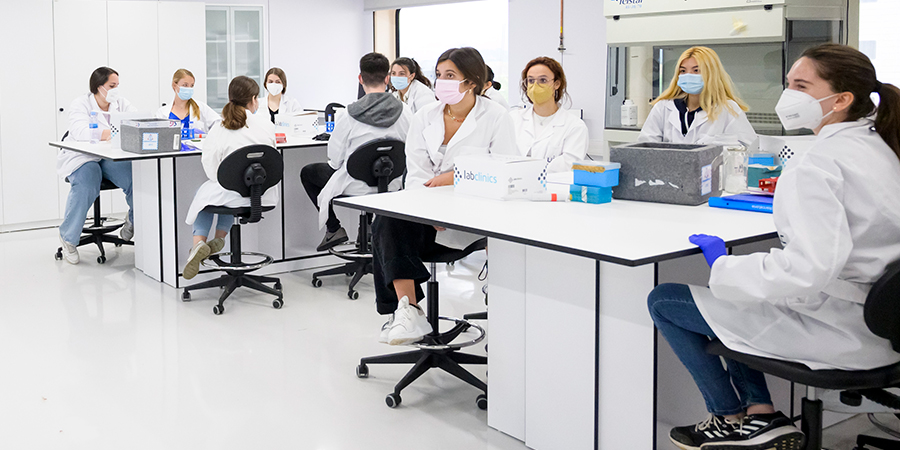
Comprehensive training
You will be able to acquire the skills and tools necessary to develop new and better methods of diagnosis, prevention or treatment of human pathologies.
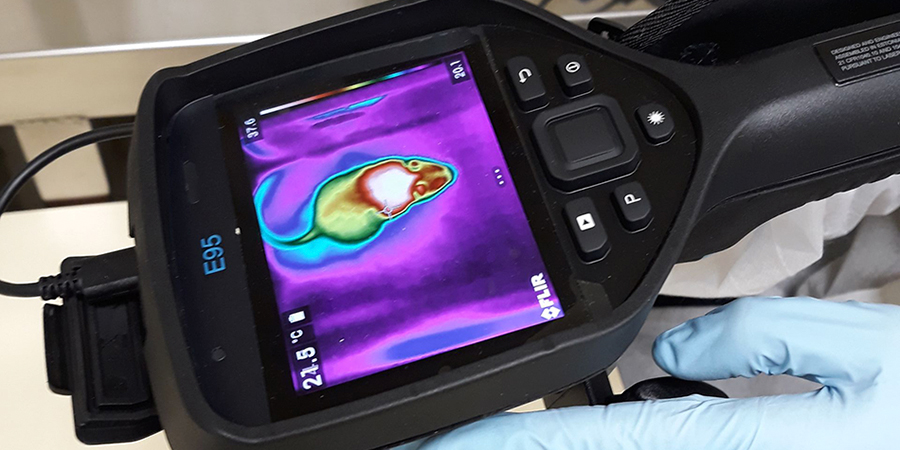
Personalised attention and monitoring
Maximum of 20 students.
The course has a high level of practical content
The Master's Degree in Experimental Biomedical Research recognises the completion of curricular work placements as particularly important within the curriculum (20 ECTS). For several months, the students carry out placements in prestigious centres recognised nationally and internationally.
From the Faculty of Medicine and Health Sciences, personalised assessment is carried out for the work placements by each student with specific training sessions, tutorials and events in collaboration with the participating organisations.
Presentation
The main objective of the Master's Degree in Experimental Biomedical Research is to provide the necessary skills to carry out a doctoral thesis and begin a scientific career in the field of Biomedicine to any student who has completed degree courses closely related to experimental Health Sciences.
Innovative methodologies
- Predominantly practical classes (20 ECTS)
- Direct contact with teachers and researchers who have developed an excellent research career in both the basic and translational sciences.
- Seminars led by active professionals in the field.
- Network of agreements that gives strength and quality to the programme.
Objectives
The Master's Degree in Experimental Biomedical Research will allow you to acquire a high degree of technical and professional specialisation in order to continue doctoral studies or develop a scientific career in research.
Students profile
The master's degree is aimed at anyone who has graduated in biomedicine or related sciences (biomedicine, human biology), biology, biotechnology and biochemistry who have received at least 90 credits of specific health content and are interested in deepening knowledge, competencies and skills necessary to be able to practise in the field of health.
They should be professionals dedicated to promoting the health and well-being of the citizens. Students should be professionals with:
- Critical thinking.
- Large capacity for analysis and reflection.
- Ability to carry out research.
- Ability to be creative and innovative.
- Ability to work in a team.
- Ability to solve problems.
- Ability to decide the best approach to each situation.
- Ability for rationalisation and debate.
- Correct use of scientific verbal and non-verbal language.
The student body must be available to attend classes and undergo work placements.
Competences
- C1: Think critically about the use of usual and alternative models of experimentation in the field of biomedical research.
- C2: Assess the suitability of experimental methodologies for research in various fields of biomedicine.
- C3: Collect, classify and summarise the results of the research activity in written form and defend it orally before a panel.
- C4: Design complex experiments, planning and executing them appropriately to solve a hypothesis or research problem.
- C5: Acquire a high degree of autonomy in practical work, which prepares students for doctoral studies in the field of biomedical research.
- C6: Identify the career possibilities within science, considering the principles of ethics and research integrity.
- C7: Respect the fundamental equal rights between the sexes, and promote human rights and values inherent in a peaceful, democratic society
- C8: Use language in oral and written media that avoids androcentrism and stereotypes.
Academic accreditation
Máster Universitario en Investigación Biomédica Experimental por la Universitat Internacional de Catalunya.
Teachers
- ANTUNES DE MELO OLIVEIRA, Ana Mafalda
- ARISTIZABAL CORRALES, David
- BAENA MUÑOZ, Miguel
- BODOY SALVANS, Susanna
- BRU RULLO, Samuel
- CLOTET ERRA, Josep
- COMPTE BRAQUETS, Albert
- COSTA VALLÈS, Cristina
- DE LAPUENTE PÉREZ, Joaquin
- DEMAJO MESEGUER, Santiago
- DEMESTRE VILADEVALL, Maria
- ERASO PICHOT, Abel
- FERNÁNDEZ LOBATO, Mercedes
- FORCALES FERNÁNDEZ, Sonia-Vanina
- GARGALLO VIOLA, Domingo
- GARRABOU TORNOS, Glòria
- GAY MARÍN, Marina
- GINES PADRÓS, Silvia
- GONZÁLEZ SEVINE, Asier
- GRIÑÁN FERRÉ, Christian
- HERNÁNDEZ ORTEGA, Sara
- HERNÁNDEZ VIEDMA, Gonzalo
- JIMÉNEZ ALTAYÓ, Francesc
- JORDÀ RAMOS, Mireia
- JOVÉ FONT, Mariona
- LAMUELA RAVENTÓS, Rosa Maria
- LOPEZ CANO, Marc
- LÓPEZ ORTS, Carlos
- LUNA SÁNCHEZ, Marta
- MALUMBRES MARTÍNEZ, Marcos
- MARCOS DAUDER, Ricardo
- MARFANY NADAL, Gemma
- MÉNDEZ FERNÁNDEZ, Olga
- MIRALLAS VIÑAS, Oriol
- MIRALPEIX MONCLÚS, Cristina
- MONELLI, Erika
- MORETA MORALEDA, Cristina
- NAVARRO FERRANDO, José Tomás
- PARAISO, West Kristian
- PARCERISAS MOSQUEDA, Antoni
- PEREZ ANTOÑANZAS, Roman
- PÉREZ VALLE, Jorge
- PUIGHERMANAL PUIGVERT, Emma
- PUJOL ALTARRIBA, Anna
- QUANDT HERRERA, Eva
- QUESADA LÓPEZ, Tania Paloma
- QUINTANA ROMERO, Albert
- RÁMILA CARREÑO, Marta
- REGUERA MORENO, Ana Cristina
- RENTERO ALFONSO, Carles
- RODRÍGUEZ FRÍAS, Francisco
- RODRIGUEZ GARCIA, Maria
- RODRÍGUEZ RODRÍGUEZ, Rosalía
- SAHÚN ABIZANDA, Ignacio
- SÁNCHEZ FERNÁNDEZ, Mayka
- SCORNIK GERZENSTEIN, Fabiana Silvia
- SILES MENA, Laura
- SUELVES ESTEBAN, Mònica
- SURRALLÉS CALONGE, Jordi
- TERRIENTE FÉLIX, Javier
- UDINA BONET, Esther
- VÁZQUEZ GÓMEZ, Esther
- VILA BOVER, Miquel
- VILLELA DANTAS, Ana Paula
- ZAGMUTT CAROCA, Sebastián Ignacio
Internship
El Màster Universitari en Recerca Biomèdica Experimental preveu la realització de pràctiques curriculars amb un pes específic molt important en el programa (20 ECTS). Durant diversos mesos els alumnes fan pràctiques en un centre de prestigi reconegut.
Les pràctiques professionals suposen una formació aplicada que segueix el fonament del pla docent.
Des de la Facultat de Medicina i Ciències de la Salut es fa un assessorament personalitzat per a la consecució de les pràctiques a cada alumne amb sessions formatives específiques, tutories i esdeveniments en els quals intervenen les entitats col·laboradores.
Actualment es disposa de prou centres per assegurar les places sol·licitades. Es presenta a continuació un llistat dels centres:
- Universitat de Coïmbra
- Universitat de Basilea
- KU Leuven
- Innovation Centre of Nanomedicine- iCONM
- Universitat de Talca
- NOVA Medical School
- Universitat de Catània
- Internacional Institute of Molecular and Cell Biology (IIMCB)
- Universität Witten/Herdecke
- Universitat de Göteborg
- Universitat de Bergen
- Lithuanian University of Health Sciences
- Mons Université
- Campus Biomèdic de Roma
- Universitat Beira Interior
- Northúmbria University
- Institute Molecular Genetics
- Institute Biochemistry and Biophysics
- Institut d’Investigacions Biomèdiques August Pi i Sunyer (IDIBAPS)
- Institut Hospital del Mar d’Investigacions Mèdiques (IMIM)
- La Vall d’Hebron Institut de Recerca (VHIR)
- Institut de Recerca en Ciències de la Salut Germans Trias i Pujol (IGTP)
- Centre d’Investigació Biomèdica La Rioja-CIBIR
- Centre d’Investigació en Nanotecnologia i Nanomaterials (CINN)
Open days
June 6th 2024 | On line. 2.00 p.m. (CET) | University Master's Degree in Experimental Biomedical Research - Official |
Research
- Neurolipid Group GRC – Research Group in Regulation of Lipid Metabolism in obesity and diabetes
- Atypical Cyclins Lab
- Fundamental Mechanisms in Cell Biology
- Cortical Circuits Group (neuroscience)
- Synaptic Plasticity Laboratory (neuroscience)
- Research Group in Iron Metabolism (genetics)
- Cancer biology (cancer). Dr. Roni Wright
- Research Group in Biomaterials for Tissue Regeneration (Regenerative medicine)
- Computational Biology (Genomics)
Prerequisites & admissions
Required documentation
Students with an official university degree from within the European Union
- An attested original photocopy of their original degree certificate or of the homologation of the same, or an original attested photocopy of the receipt for payment of fees for issuing the degree certificate.
- An attested original photocopy of your academic transcript containing your marks for the university studies you have completed.
*If the documents are in a language other than Spanish, Catalan, English, French or Italian, please submit a sworn Spanish translation of your degree certificate and academic transcript.
Students with an official university degree from outside the European Union
- A legally certified original photocopy of your original degree certificate.
- A legally certified original photocopy of your academic transcripts from past university studies.
* The legal certification of documents should be undertaken submitted legalised in the country of origin, or if applies, by the stamp of the Haya Agreement or the Andrés Bello Agreement.
*If the documents are in a language other than Spanish, please submit a sworn Spanish translation of your degree certificate and academic transcript.
In all cases
- Two passport-sized photos.
- A photocopy of your national ID card (DNI) or passport.
- An up-to-date CV.
Documentació necessària
Alumnes amb títol universitari oficial espanyol:
- Fotocòpia compulsada original del títol universitari o del document d’homologació del títol, o fotocòpia compulsada original del resguard de pagament de les taxes d’emissió del títol.
- Fotocòpia compulsada original del certificat acadèmic de notes dels estudis universitaris cursats.
Alumnes amb títol universitari oficial estranger:
- Fotocòpia legalitzada original del títol universitari.
- Fotocòpia legalitzada original del certificat acadèmic de notes dels estudis universitaris cursats.
En tots els casos:
- Una fotografia de mida de carnet.
- Fotocòpia del DNI o del passaport.
- Curriculum vitae actualitzat.
- Carta de motivació.
- Carta de referència: pot ser del tutor de pràctiques externes de grau, el tutor de TFG o similars o una carta d’interès d’un director potencial de tesi per fer el doctorat.
- Si l’idioma de procedència de la documentació no és l’espanyol, s’ha de presentar la traducció jurada original a l’espanyol del títol universitari i del certificat acadèmic.
Criteris d’admissió
Podran sol·licitar l’ingrés tots els candidats que compleixin les vies i els requisits generals d’accés al títol i que tinguin una formació prèvia i titulació universitària en Fisioteràpia. El perfil d’ingrés recomanat és el d’una persona que, a més dels requisits exposats, tingui interès i motivació cap a la recerca i la promoció de la salut en el pacient pediàtric.
|
Ponderació |
Criteri |
Aspectes a valorar |
|
60 % |
Expedient acadèmic |
Nota mitjana de l’expedient del grau |
|
20 % |
Valoració del curriculum vitae |
Estades a l’estranger (40 %), pràctiques extracurriculars (30 %), publicacions (10 %), congressos (10 %), experiència professional i altres mèrits (10 %). |
|
10 % |
Carta de motivació |
Carta dirigida a la coordinació del Màster. Es valorarà l’interès per la recerca en l’àmbit biomèdic, la carrera investigadora i el doctorat, l’interès en UIC Barcelona, així com les habilitats i les aptituds personals que són transversals a l’àrea de coneixement del màster. |
|
10 % |
Referències |
Es valoraran cartes de referència del tutor de pràctiques externes de grau, del tutor de TFM o similars, carta d’interès d’un director potencial de tesi per fer el doctorat. Es valorarà la motivació per aprendre, investigar en biomedicina, tenir proactivitat i capacitat de treballar en equips. |
Reserva i matrícula
- Els candidats que hagin estat acceptats en un màster o postgrau reben una carta d’admissió condicionada al pagament d’una reserva de plaça.
- La reserva de plaça es fa efectiva mitjançant l’ingrés, dins dels 5 dies hàbils següents a la recepció de la comunicació de l’admissió, de la quantitat estipulada segons el programa.
- Un cop formalitzada la reserva de plaça de la manera indicada, si un estudiant no complís, segons la legislació estatal o autonòmica vigent en cada moment, els requisits d’admissió al curs, no disposés de la titulació que s’exigeix o el curs no arribés a formalitzar matrícules per manca d’inscripcions, UIC Barcelona retornaria íntegrament l’import de la reserva de plaça.
- Si l’estudiant, per la seva pròpia voluntat renuncia per qualsevol motiu al curs, UIC Barcelona farà seva íntegrament i sense obligació de devolució la quantitat rebuda en concepte de reserva de plaça com a compensació pels danys i perjudicis ocasionats.
- Si l’estudiant no fa efectiva la reserva de plaça s’entendrà que renuncia a la plaça, de manera que faculta des d’aquell moment UIC Barcelona perquè anul·li i deixi sense efecte la sol·licitud de plaça efectuada.
Grants & financial aid
Grants
We do not offer grants for postgraduate studies. For financial aid, you must contact non-UIC Barcelona institutions.
Alumni Ambassadors
Meet our Alumni Ambassadors
Alumni Ambassadors are former students who have volunteered to talk about their experience at UIC Barcelona. With them you can address any doubts about your chosen studies, the university and the student experience.
